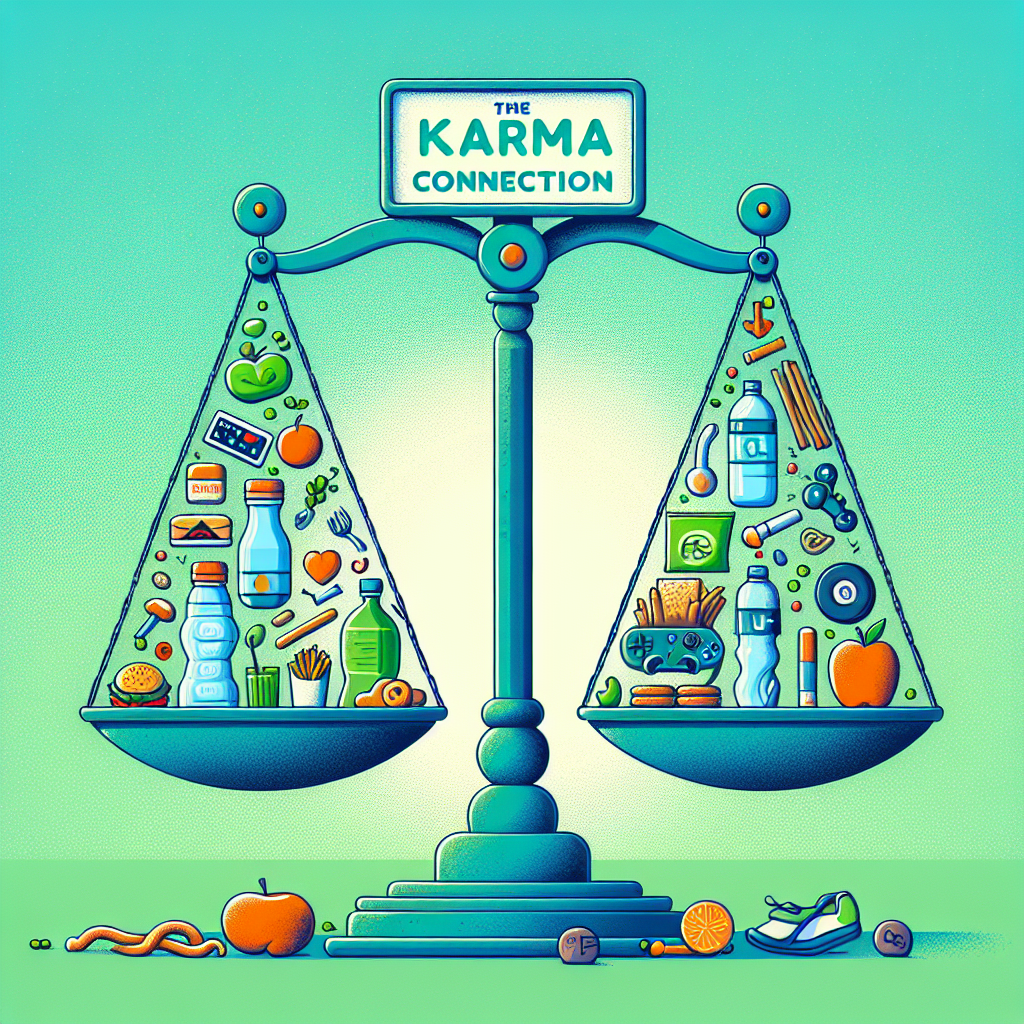The concept of karma is often associated with Eastern religions, particularly Hinduism and Buddhism, but its implications extend far beyond its cultural origins. At its core, karma refers to the idea that our actions—both good and bad—return to us in some form. This cyclical notion suggests a connection between our behaviors and the outcomes we experience in life, including our physical and mental health. In this article, we will explore the intricate link between karma and health, highlighting the ways our actions influence our well-being.
Understanding Karma
Karma, derived from the Sanskrit word "karman," literally means "action" or "deed." It posits that every action generates a set of consequences, shaping our destinies. While many view karma through a moral lens, its essence applies broadly to the law of cause and effect. For instance, when you engage in positive actions, such as helping others or practicing kindness, the resulting positive energy can create beneficial outcomes in your life, aiding in both mental and physical health.
The Mind-Body Connection
The mind-body connection is a foundational aspect of health and wellness. Numerous studies have highlighted how our thoughts, emotions, and actions can significantly influence our physical health. When we engage in negative behaviors, such as holding onto anger, resentment, or guilt, it can create stress responses in our bodies. This chronic stress can lead to health issues, including cardiovascular disease, digestive problems, and weakened immune function.
Conversely, positive actions and the practice of gratitude, compassion, and mindfulness have been shown to reduce stress, lower blood pressure, and bolster the immune system. When we choose to act with kindness and empathy, not only do we improve the lives of others, but we also enhance our own health and happiness. This reflects the karmic principle that what we put into the world will ultimately come back to us.
How Positive Actions Foster Health
Physical Health Benefits:
Engaging in positive actions, such as volunteering or helping a neighbor, can lead to numerous health benefits. Research indicates that such altruistic behaviors can decrease the risk of chronic diseases like heart disease and stroke. When we perform acts of kindness, our bodies release oxytocin, a hormone that mitigates stress and promotes an overall feeling of well-being.Mental Well-being:
Positive interactions with others can significantly impact our mental health. Acts of altruism trigger the brain’s reward system, releasing dopamine and serotonin—neurotransmitters associated with feelings of happiness and satisfaction. When we realize that our actions positively impact others, it can foster a sense of purpose, reducing symptoms of anxiety and depression.- Social Connectivity:
Humans are inherently social creatures. Engaging in positive behaviors strengthens social bonds, fostering a sense of community and belonging. Strong social networks provide emotional support during challenging times, which can significantly improve resilience and overall health.
The Ripple Effect of Negative Actions
How we treat others and ourselves can have equally profound negative consequences on our health. Negative actions, such as harboring jealousy or anger, can lead to detrimental health effects:
Chronic Stress and Anxiety:
The burden of negative emotions can heighten stress and anxiety levels, triggering the "fight or flight" response in the body. Chronic activation of this response can lead to serious health issues, including heart disease, obesity, and a host of psychosomatic disorders.Isolation and Loneliness:
Negative actions, such as withdrawing from social situations out of spite or hostility, can lead to isolation. The lack of social interaction can exacerbate feelings of loneliness, which has been linked to numerous health issues, including cognitive decline and diminished immune response.- Self-destructive Behaviors:
When people carry negative emotions, they may turn to unhealthy coping mechanisms such as substance abuse, overeating, or other destructive behaviors. These actions can have a lasting impact on physical health, leading to chronic illnesses.
Practicing Positive Karma for Better Health
To leverage the connection between your actions and health, consider adopting the following practices:
Practice Mindfulness: Engage in mindfulness practices such as meditation and yoga, which can cultivate self-awareness and encourage positive thoughts and actions.
Volunteer and Give Back: Look for opportunities to help others in your community. Teaching, mentoring, or even simply being there for a friend can enhance your sense of connectedness and improve your mental well-being.
Cultivate Gratitude: Keep a gratitude journal and regularly reflect on the positive aspects of your life. This practice can shift your focus from negativity to positive outcomes.
Nurture Relationships: Invest time in building nurturing relationships. Positive social interactions can help buffer stress and improve overall health.
- Set Healthy Boundaries: Learn to say no to situations or individuals that drain your energy or do not contribute positively to your well-being.
Conclusion
Understanding the karmic connection between our actions and our health empowers us to cultivate a more mindful and intention-driven life. By embracing positivity, kindness, and compassion, we can not only enhance our own health but also contribute to a healthier, more harmonious world. The cyclical nature of karma reminds us that every action matters and that through our choices, we have the agency to shape our health and well-being.
FAQs
Q1: Can negative actions really affect my health?
A1: Yes, negative actions and thoughts can lead to chronic stress, anxiety, and other mental health issues, which can have physical health consequences.
Q2: How can I start practicing positive karma in my daily life?
A2: Begin by making conscious choices to help others, practicing gratitude, and nurturing positive relationships. Small acts of kindness can create a significant impact on your health and happiness.
Q3: Is karma only about what we do for others?
A3: Karma includes how we treat ourselves, as well. Engaging in self-care, maintaining a positive mindset, and resisting self-destructive behaviors are crucial for our well-being.
Q4: What is the best way to cope with negative emotions?
A4: Effective coping strategies include mindfulness practices, physical activities, talking to a friend, or seeking professional help. Cultivating awareness can help you manage your emotions better.
Q5: Can practicing gratitude really improve my health?
A5: Yes, numerous studies have shown that regular gratitude practices can improve mental health, enhance emotional well-being, and even lead to improved physical health outcomes.
It seems like you might have wanted to provide a specific prompt for me to respond to or expand upon. Could you please clarify or specify what you would like help with? Whether it’s a creative writing prompt, a question, or anything else, I’m here to assist!, #Karma #Connection #Actions #Impact #Health, #Karma #Connection #Actions #Impact #Health, 1734308789, the-karma-connection-how-your-actions-impact-your-health





